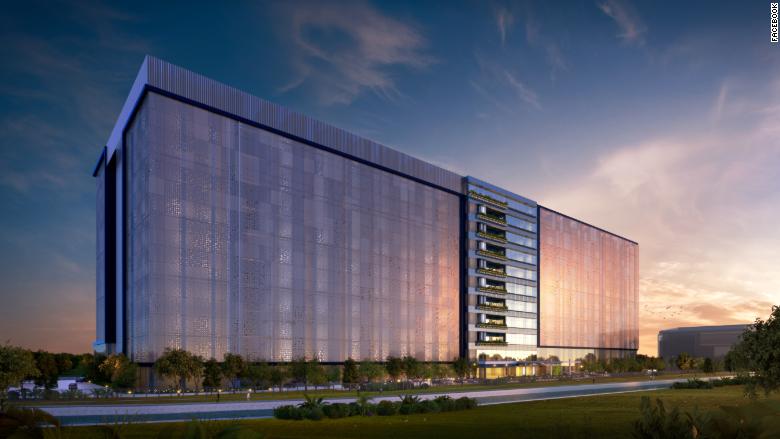
Facebook has picked Singapore for its first data center in Asia, announcing plans to spend $1 billion on a project that highlights its growth ambitions in the region.
The company is joining other tech heavyweights like Google (GOOGL) and Microsoft (MSFT) in pouring big sums into network infrastructure in Singapore to power the online services they offer.
To deal with Singapore's high population density, Facebook's (FB) new data center will be 11-stories tall rather than sprawling over a wide area as its ones in the United States and other countries do.
The 170,000-square-meter (1.8-million-square-foot) facility will "support hundreds of jobs" in Singapore, the company said in a statement.
Facebook said it chose Singapore for several reasons, including the quality of the city-state's infrastructure and workforce, and its business friendly environment.
The tiny nation has also taken a more relaxed stance on the storage and transfer of data than some other countries in the region such as China and India.
"We want to connect in the non-physical dimensions to the rest of the world. That includes data," Singaporean Trade Minister Chan Chun Sing said Thursday at a groundbreaking ceremony for the Facebook facility.

Google, which last month announced plans for its third Singapore data center, has cited similar advantages for building the huge facilities there. It also points out that Singapore is well situated in the heart of Southeast Asia, one of the fastest growing internet markets in the world.
In the past three years, "more than 70 million people in Southeast Asia have gotten online for the first time, bringing the region's total to more than 330 million," Google said last month. "That's more than the population of the United States."
Facebook already has data centers across the United States and in Europe. And it appears to be planning to add more in Asia soon.
According to a job posting, it's looking to hire a construction manager based in Singapore who will be "responsible for overseeing and guiding the development of our future data center projects" in the Asia-Pacific region.

